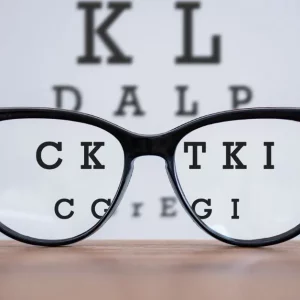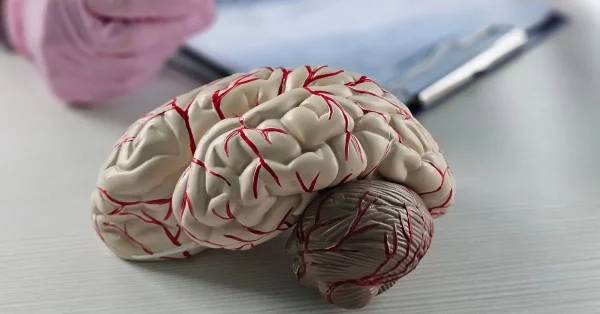Numbness after head injury is most commonly associated with damage to the somatosensory cortex, an area of the brain responsible for processing sensory information such as textures and temperatures.
Numbness can last a few weeks, months, or years and be accompanied by a burning, prickling, or tingling sensation. While there is a possibility that sensation may be restored through spontaneous recovery, there are many effective management techniques that can promote the likelihood of a fuller recovery.
This article will discuss the causes of numbness after head injury and some of the most effective ways to promote recovery. Use the links below to jump straight to any section:
What Causes Numbness After Head Injury?
Numbness is a common secondary effect of a traumatic brain injury. Numbness can occur when certain areas of the brain are damaged, such as the somatosensory cortex. This area of the brain is responsible for processing all bodily sensations, including:
- Pain
- Touch
- Weight
- Temperature
- Proprioception (position of the body in space)
The thalamus is another structure of the brain that plays a key role in sensory processing. After the nerves detect sensation, they send that information to the brain’s thalamus, which then passes it on to the somatosensory cortex. If the thalamus or somatosensory cortex sustains damage, the brain may no longer be able to accurately process sensation, potentially leading to numbness.
Numbness after head injury can also develop from nerve damage. Depending on how an individual was injured, a traumatic brain injury can be accompanied with co-occurring nerve damage throughout the body.
For example, when the trigeminal nerve, which is responsible for sensation in the face, sustains damage, it may not be able to send information about facial sensation to the brain properly, causing numbness in the face. If an individual experiences whiplash at the time of their injury, there is a possibility of injury to several nerve clusters in the neck.
Compression of these nerves can also lead to numbness. Lastly, individuals who have sustained multiple traumas at the time of their head injury, such as survivors of severe car accidents, could have nerve damage in the arms, legs or spinal cord resulting in numbness in associated areas of the body.
How Numbness After Head Injury Is Diagnosed
Numbness after head injury can be caused by various factors, including damage to the somatosensory cortex and nerve damage. Because treatment is dependent on the cause, it’s important to understand the symptoms and obtain a proper diagnosis.
Symptoms of nerve damage after head injury may include:
- Burning
- Itching
- Hypersensitivity to touch
- Abnormal, uncomfortable sensation (dysesthesia)
- Non-painful tingling (paresthesia)
- Prickling or “pins and needles” sensation
- Complete loss of sensation
To determine the root cause of numbness, doctors will look for symptoms of nerve damage and they may also perform a variety of tests. This can include MRIs and CT scans to visually localize the parts of the brain that may have been affected.
Doctors may also use a nerve conduction velocity test to measure electrical activity, particularly in the peripheral nerves. This is an effective way to determine whether numbness after head injury is caused by brain or nerve damage. Therapists may also perform specific tests to determine if numbness is caused by a neck injury.
How to Treat Numbness After Head Injury
With a proper diagnosis, treatment can begin. Depending on the cause and severity of numbness, treatment can include a combination of methods. For example, when numbness is caused by brain damage, one of the most effective treatment options is sensory reeducation.
If numbness is caused by nerve damage, other methods like acupuncture and electrical stimulation may be most effective. It’s important to consult with your doctor or therapist to find the most effective treatment suitable for your condition.
Here are some of the most effective treatments for numbness after head injury:
1. Sensory Reeducation
Sensory reeducation is a therapeutic technique that occupational therapists may use to retrain the brain to accurately recognize, process, and respond to sensory stimulation. Exercises often include touching different objects to activate neuroplasticity, the brain’s natural ability to heal itself.
Sensory reeducation exercises for numbness may include:
- Rice bowl exercise: First, fill a bowl with rice or sand, and have someone hide marbles or coins inside the rice. Without using your vision, retrieve each object with your hand.
- Sensory locating: Close your eyes and have someone else place their hand on your arm. Now, point to the place where you think they touched you. If it is wrong, they should move your hand to the correct spot for clarification and retraining.
- Temperature differentiation: Soak one cloth in cold water and another one in warm water, not hot water. Have someone lay the cold cloth on your arm while you close your eyes. Next, have them lay the warm cloth on your arm. Then, try to determine if you can feel a difference between the two.
- Texture handling: Place different objects in your hand while your eyes are open. Look at them, and try to describe how they feel. Once you have gone through all the objects, repeat the exercise with your eyes closed. It is often helpful to use objects of significantly different textures, such as a soft blanket as opposed to a rough piece of Velcro.
These exercises help stimulate the brain and activate neuroplasticity, which can help decrease numbness after head injury. An occupational therapist can also provide you with exercises tailored to your needs.
2. Electrical Stimulation (e-stim)
Electrical stimulation (e-stim) is another treatment option that may reduce numbness after head injury. E-stim is a popular form therapy that involves sending electrical impulses to the affected muscles through adhesive electrodes placed on the skin. E-stim can also encourage neuroplasticity and help improve muscle movement after a TBI.
While electrical stimulation can be performed on your own, it’s important to first train with a therapist. They will be able to teach you how to safely operate your e-stim device by guiding you through which parameters to use and where to place the electrodes.
Although electrical stimulation can help treat numbness after head injury, it is important to exercise caution. Since individuals with sensation loss may be unable to accurately feel the intensity of the electrical impulses, there is a possibility of irritating or burning the skin. E-stim should not be painful, and it is recommended that those with sensation loss regularly check their skin throughout treatment to prevent any issues.
3. Acupuncture
Numbness after head injury may also be treated with acupuncture. While it may not directly reduce numbness, studies show that it can help relieve neuropathy. Because numbness is a form of neuropathy, acupuncture might be an effective option for you.
4. Massage Therapy
When numbness after head injury is caused by a pinched nerve in the neck, massage therapy may be an effective treatment. Massage therapy and manual manipulation can help relieve pressure on the nerves in the neck and other areas of the body, which may help restore sensation.
5. Medication
Lastly, medication, like anti-inflammatory drugs, can provide relief from tingling and burning sensations that often accompany numbness. Other drugs such as lidocaine patches and certain antidepressants may also help reduce pain associated with numbness. Consult with your doctor before adding or removing any medication from your TBI recovery plan.
While these techniques can help manage numbness after head injury, it is also essential to address any safety concerns related to a loss of sensation. Until your sensation returns fully, make sure you check your skin regularly to ensure there are no new injuries. Depending on which parts of your body are affected, other safety strategies that may be used include:
- Wearing cut-resistant gloves when chopping foods
- Always using a pot holder when handling items on the stove or oven
- Setting your water heater temperature to 120°F to prevent scalding
- Wearing shoes both indoors and out to prevent injury to the feet
Discuss any other safety concerns regarding sensation loss with your occupational therapist in order to prevent further injury or complications.
When to Seek Urgent Care After Head Injury
Numbness after a head injury can fade on its own or may last for an extended period. While numbness is usually not life-threatening, it’s important to take all symptoms seriously and seek the proper medical help, especially when other signs are present.
Signs that require immediate medical care after head injury include:
- Severe headache
- Double vision
- Uncontrollable vomiting
- Seizures
- Slurred speech
- Vertigo
- Amnesia
- Neck stiffness
If you experience any of the symptoms above, along with numbness, it’s crucial to seek urgent care. Doctors can administer the proper tests and provide the treatments necessary to prevent numbness and other symptoms from worsening.
Overcoming Numbness After Head Injury
Numbness after head injury can be caused by brain damage, nerve damage, or other factors. This can often lead to impaired sensation and other symptoms. Fortunately, there are effective management techniques that can help reduce numbness and restore sensation after a TBI.
Treatment may include a combination of sensory reeducation, electrical stimulation, acupuncture, and/or massage therapy. A therapist can help provide more guidance on which treatment options are safe and effective.
We hope this article helped you understand numbness after head injury and encouraged you to explore your treatment options.










